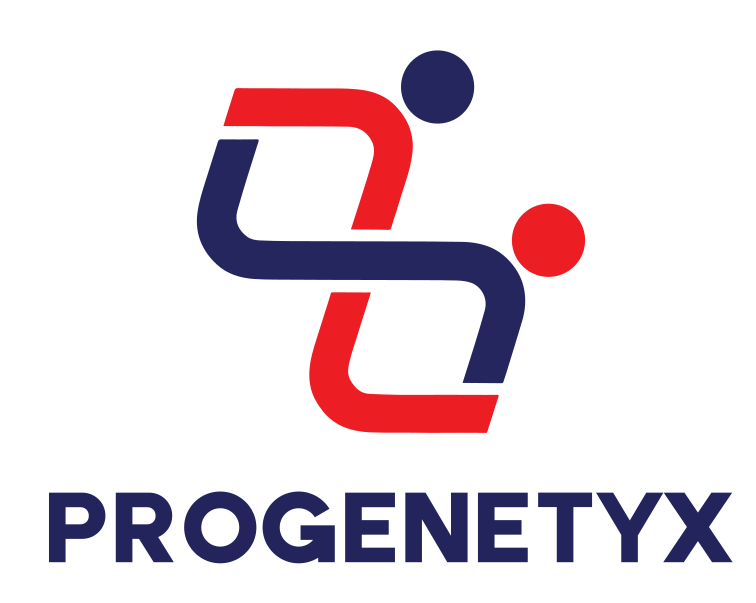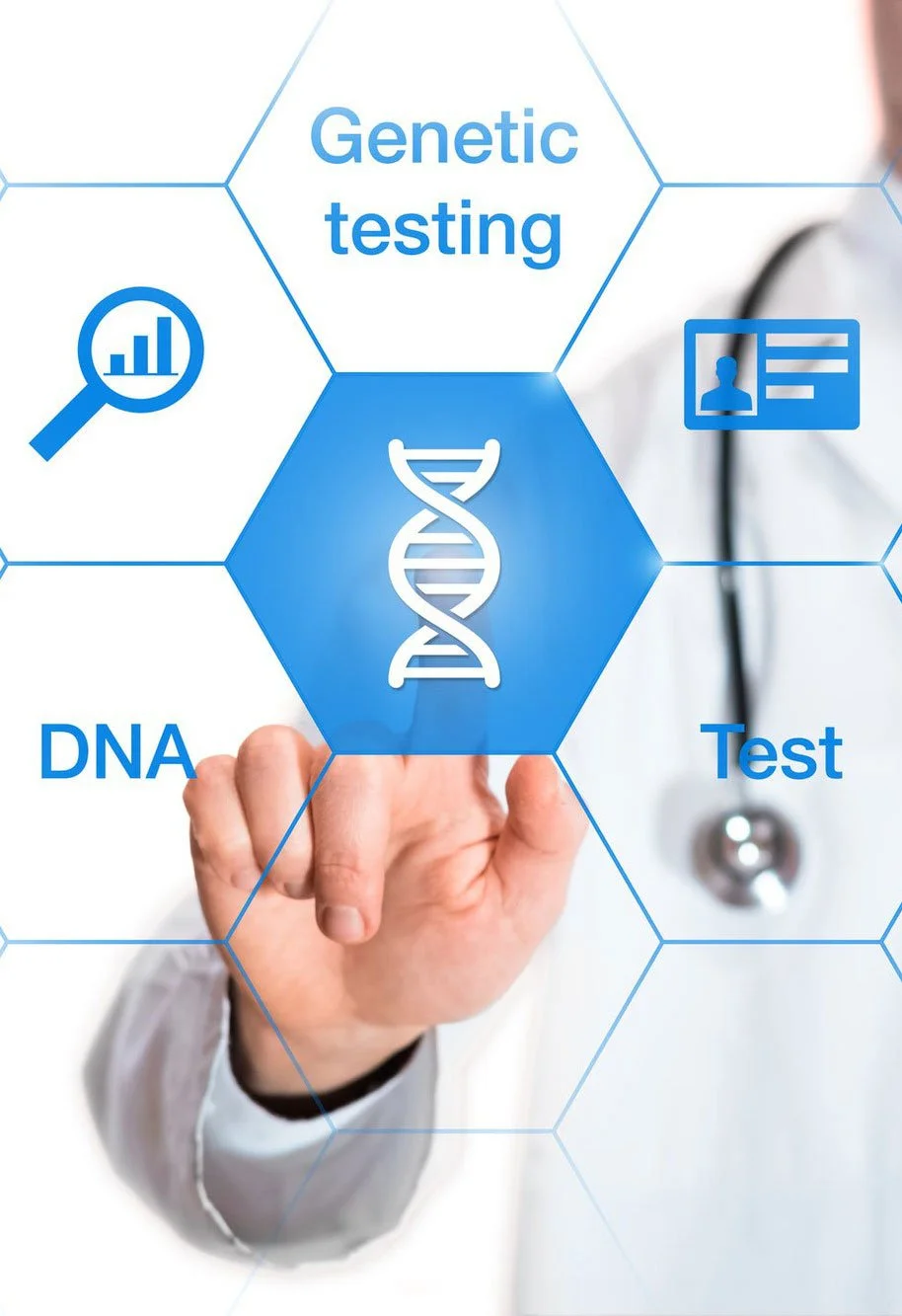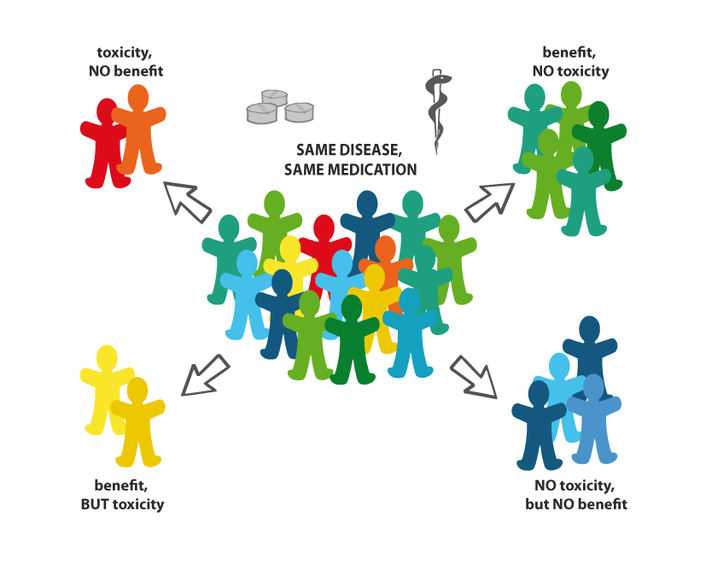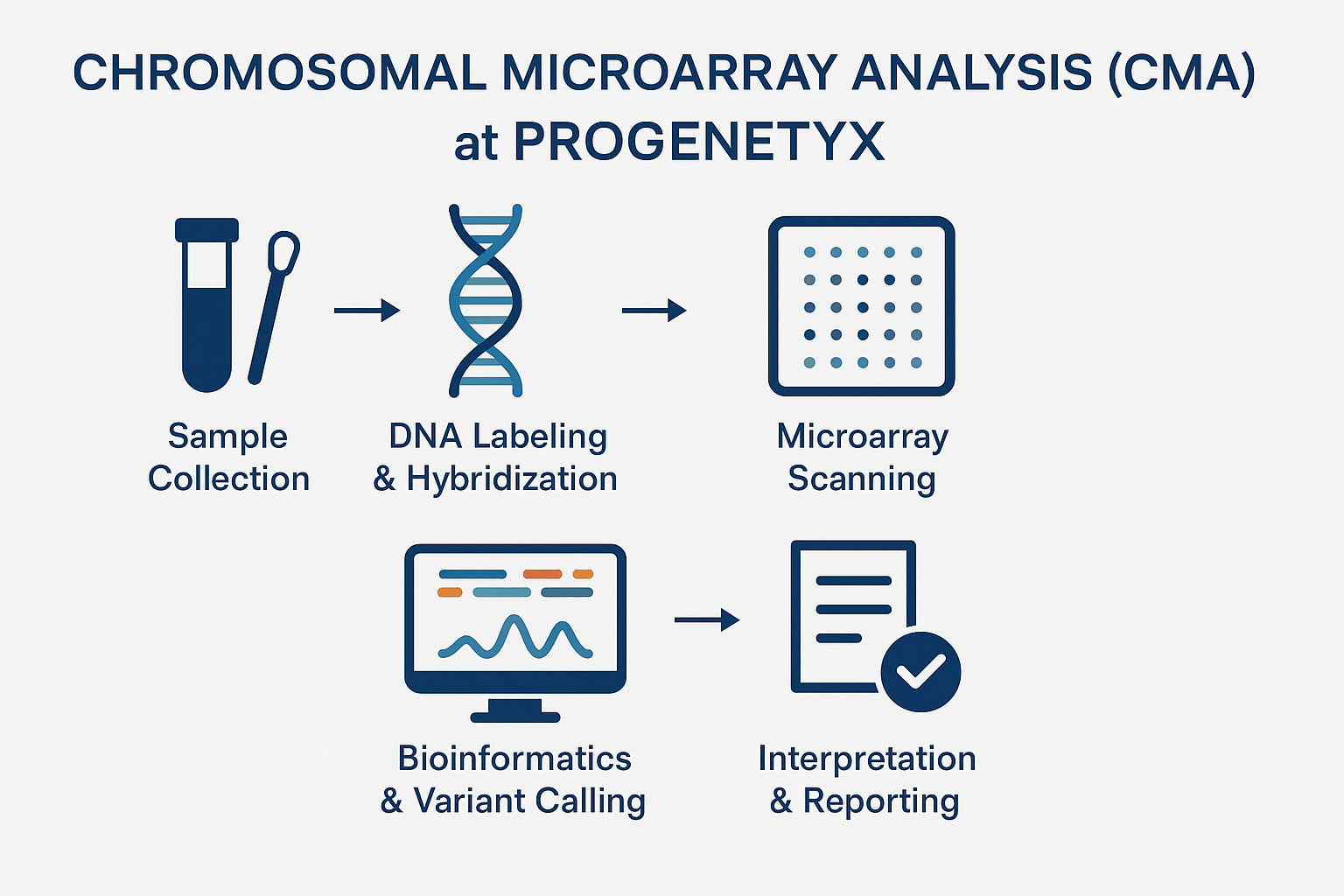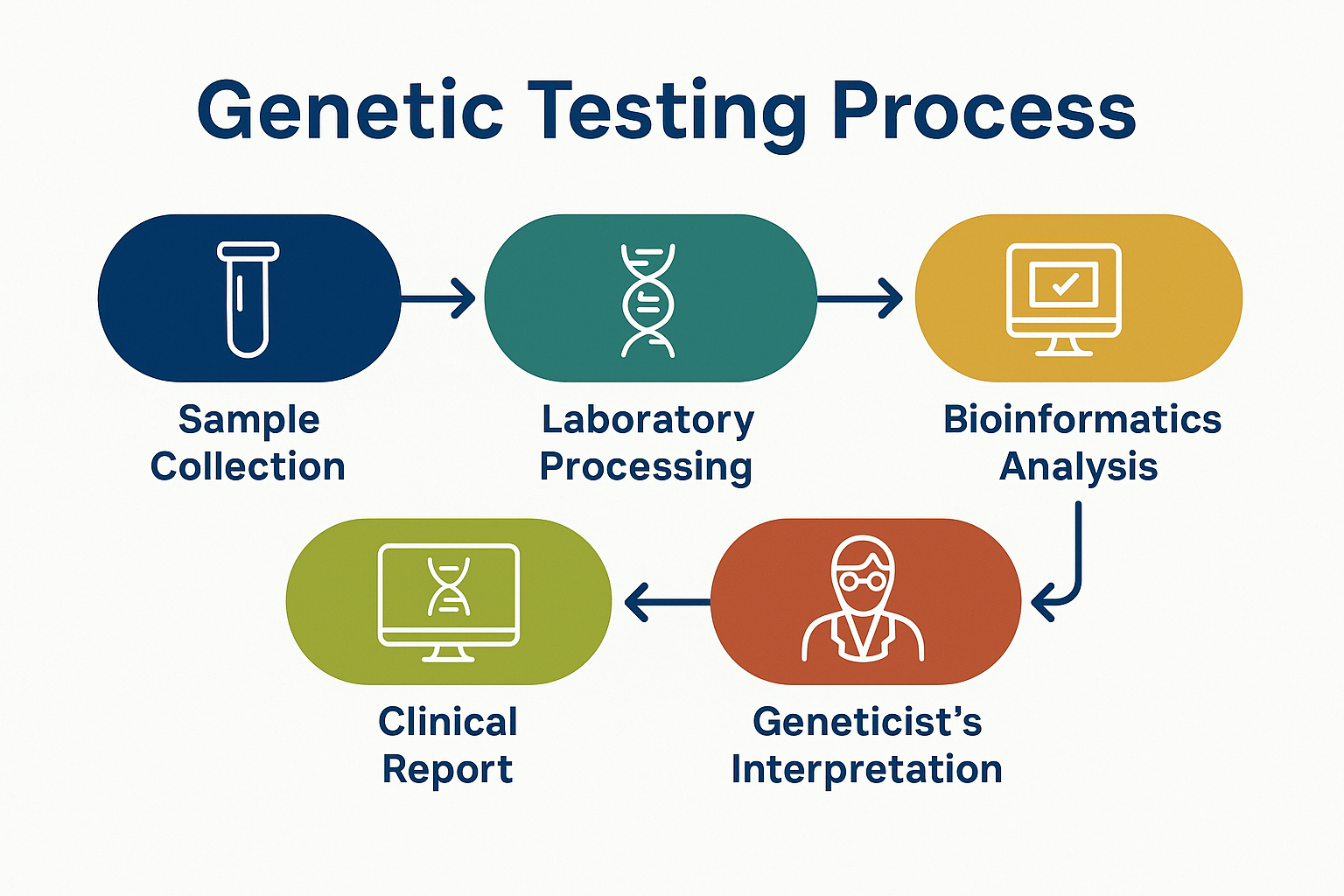Pioneering the Future of Genetic Sciences
Step into the transformative realm of genetic science—where each breakthrough brings us closer to solving life’s most complex puzzles. At the forefront of innovation, Progenetyx is redefining the boundaries of medicine and biology.
Through advanced genomic testing and precision diagnostics, we are unlocking the secrets of the human genome to deliver cutting-edge, personalized solutions.

What We Do
Progenetyx is a leading genetic testing and screening company committed to delivering high-precision diagnostics and actionable insights that empower doctors to make more informed treatment decisions through accurate, timely genetic information.
•We offer dedicated support and preferential contracts for hospitals and diagnostic centers conducting large-scale or high-throughput genetic testing.
Our vision
To lead the advancement and reach of genomic testing by delivering high-precision sample testing & data-driven reporting solutions that decode complex genetic disorders and drive the future of personalized, predictive, and preventive healthcare.
Types of Genetic Tests
We offer a comprehensive suite of DNA-based genetic tests, powered by advanced Next-Generation Sequencing (NGS) platforms such as Illumina NovaSeq and PacBio. All tests are performed in a CLIA-certified, HIPAA-compliant lab, with expert clinical interpretation.
✅ 1. Whole Exome Sequencing (WES)
Focuses on the protein-coding regions (~30,000 genes)
Detects single nucleotide variants (SNVs), insertions/deletions (INDELs), and rare mutations
Ideal for diagnosing rare, undiagnosed, or inherited disorders
Applications: Neurological disorders, mitochondrial dysfunction, autism, epilepsy, etc.
✅ 2. Whole Genome Sequencing (WGS)
Covers the entire genome (coding and non-coding DNA)
Detects structural variants, CNVs, mitochondrial variants, and non-coding mutations
Broadest view of genetic makeup for both clinical and research purposes
✅ 3. Chromosomal Microarray Analysis (CMA)
Detects large chromosomal abnormalities: deletions, duplications, aneuploidy
Commonly used in developmental delays, autism spectrum disorders, and congenital anomalies
✅ 4. MTHFR Gene Testing
Sequencing of C677T and A1298C polymorphisms
Associated with methylation disorders, cardiovascular risk, pregnancy loss, and mental health
✅ 5. Mitochondrial DNA Sequencing
Detects mutations in mitochondrial genes
Useful in diagnosing mitochondrial disorders, muscle weakness, neurological regression, etc.
✅ 6. Pharmacogenomic (PGx) Testing
Analysis of genes affecting drug metabolism and response
Includes: CYP2D6, CYP2C19, CYP3A4, SLCO1B1, VKORC1, and more
Helps in personalizing drug prescriptions and avoiding adverse reactions
✅ 7. Carrier Screening Panels
Screens for common and severe recessive conditions (e.g., Thalassemia, Sickle Cell, Cystic Fibrosis)
Ideal for couples planning pregnancy
✅ 8. Research & Custom Panels
Gene panels tailored for research or specific clinical needs (e.g., ADHD, Autism, Epilepsy)
Supports cohort studies and targeted genetic discovery
Comprehensive Gene Panels
Analysis of key genes like CYP2D6, CYP2C19, CYP3A4, SLCO1B1, TPMT, VKORC1, and others involved in drug metabolism and transport.
NGS-Based Accuracy
Using high-throughput Next-Generation Sequencing (NGS) to provide precise detection of genetic variants across multiple pharmacogenes.Actionable Clinical Reports
Our reports are designed for physicians and include dosage recommendations, drug-gene interactions, alternative options, and guidelines based on CPIC and FDA pharmacogenomics labeling.CLIA-Certified, HIPAA-Compliant
Testing is performed in a secure, certified lab environment ensuring clinical validity and patient confidentiality.
Key Features of Pharmacogenomic (PGx) testing
Avail our advanced Pharmacogenomic (PGx) testing to uncover how your unique genetic makeup affects your response to medications. Our goal is to help healthcare providers personalize drug therapy—maximizing efficacy while minimizing adverse effects.
Pharmacogenomics is the study of how genes influence an individual’s reaction to drugs. Genetic variations can affect drug metabolism, absorption, and response—making one-size-fits-all prescribing inefficient or even dangerous. PGx testing enables safer, smarter prescribing based on your DNA
Key Features of Whole Exome sequencing (WES) testing
At Progenetyx, we offer advanced Whole Exome Sequencing (WES)—a powerful tool for identifying disease-causing genetic mutations by focusing on the protein-coding regions of the genome, where nearly 85% of known disease-related variants reside.
High-Coverage, Clinical-Grade Sequencing
Using cutting-edge platforms like Illumina NovaSeq, we provide deep coverage for accurate detection of single nucleotide variants (SNVs), insertions/deletions (INDELs), and rare mutations.Comprehensive Variant Analysis
Our advanced bioinformatics pipeline identifies and annotates variants across more than 20,000 genes, helping uncover the genetic basis of rare or complex diseases.Expert Clinical Interpretation
Each WES report is reviewed by experienced geneticists and supported with evidence-based annotations, ACMG classification, and potential treatment options when applicable.Personalized and Scalable
WES is available for single individuals, duo/trio testing for family-based analysis, or cohort studies for research. It is ideal for unresolved cases after traditional genetic testing.CLIA-Certified, HIPAA-Compliant
All testing is performed in our secure, accredited laboratory, ensuring the highest standards in data quality and patient confidentiality.
Variant Detection: We analyze the most common and clinically relevant polymorphisms (C677T and A1298C), with full-gene sequencing available upon request.
NGS-Based Precision: Performed using advanced next-generation sequencing (NGS) for accurate, high-throughput detection.
Clinical Insight: Includes interpretation on how your MTHFR status may influence folate utilization, homocysteine metabolism, and nutritional needs.
Certified Lab Standards: All tests are processed in our CLIA-certified, HIPAA-compliant laboratory with stringent quality control.
Key Features of MTHFR Sequencing
At Progenetyx, we provide targeted MTHFR gene sequencing to identify clinically significant variants associated with folate metabolism, cardiovascular risk, neurological conditions, and pregnancy-related complications. Our precise testing helps guide personalized health strategies through a deeper understanding of your genetic profile.
What is the MTHFR Gene?
The MTHFR (methylenetetrahydrofolate reductase) gene encodes an enzyme essential for processing folate and regulating homocysteine levels in the body. Variants in this gene—particularly C677T and A1298C—can impact methylation efficiency, cardiovascular health, mood regulation, and neural development.
Key Features of Chromosomal Microarray Analysis (CMA)Sequencing
Chromosomal Microarray Analysis (CMA) is a high-resolution genetic test used to detect copy number variations (CNVs) such as deletions, duplications, and aneuploidies across the genome. It is more sensitive than conventional karyotyping and is commonly used in clinical genetics to diagnose unexplained developmental delays, intellectual disabilities, autism spectrum disorders, and congenital anomalies.
At Progenetyx we provide, High-resolution detection of CNVs and LOH
Clinically validated pipelines with expert review
Personalized reports with phenotype correlation
Genetic counseling support integrated into workflow
Fast turnaround times for both postnatal and prenatal cases
Testing Work-Flow
At Progenetyx, our genetic testing workflow is designed to deliver fast, accurate, and actionable results to healthcare providers and patients. Each stage of the process is managed under strict quality control and clinical oversight to ensure the highest standards in genomic diagnostics.
1. Sample Collection
The process begins with the secure collection of a biological sample (typically blood or saliva) from the patient, using validated and easy-to-use kits to preserve DNA integrity.
2. Laboratory Processing
The sample is processed in our state-of-the-art lab using advanced Next-Generation Sequencing (NGS) technologies. High-throughput platforms such as Illumina NovaSeq and PacBio SMRT are used to extract and sequence genomic data with precision.
3. Bioinformatics Analysis
Our expert bioinformatics team applies robust, AI-enhanced pipelines to interpret the sequencing data. Variants of clinical significance are identified, annotated, and prioritized using globally recognized databases and algorithms.
4. Geneticist’s Interpretation
Our board-certified geneticists and clinicians, including those accredited by the American Medical Association (AMA), review the results for clinical context. They provide interpretation aligned with current medical guidelines to assist in personalized treatment planning.
5. Clinical Report
The findings are compiled into a comprehensive and physician-friendly clinical report. Each report highlights pathogenic variants, relevant gene-disease associations, and therapeutic implications when available.
Contact Us
Interested in working together? Fill out some info and we will be in touch shortly.!
